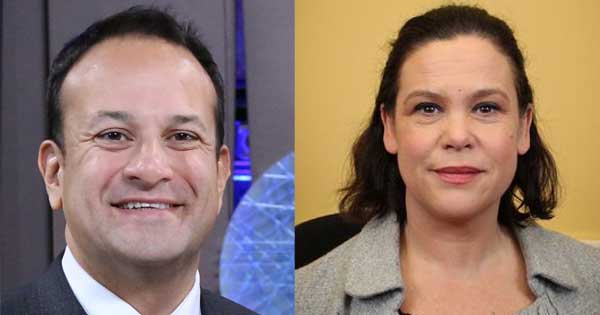One of Ireland’s top politicians has blasted current laws that have led to a British moneylender being able to charge Irish people almost 50% interest on loans.
Sinn Féin leader Mary Lou McDonald said that the situation amounted to ‘state-sponsored robbery’.
Amigo Loans are a British company that offer customers quick access to money – but at huge rates of interest that see them have to pay back a considerable amount more than they borrowed.

They are coming to Ireland in early 2019 but there are similar companies already operating here.
In the build up to Christmas many people feel under pressure to turn to these sort of firms after being refused a loan from more traditional sources such as the bank.
Under the current law, there are no limits to the amount of interest a pay day loan firm can charge its customers.
It means that people can spend moths or even years paying many times more than what they originally borrowed.
Ms McDonald said this is not fair and that the firms were ‘getting rich on the back of people’ who were worried about giving their families a special Christmas.
She told the Dáil: “There is an urgent need to introduce a cap on the interest rates these types of outfits can charge.
“There is also a need for more wide-ranging reform of the regulation of moneylenders and the policing of illegal loan sharks.”
The Central Bank has issued Amigo Loans a license to operate in Ireland. They say they offer loans to ‘people with bad credit’.
Customers can access loans of up to £10,000 in just 24 hours – however, the interest rate will be almost 50%.
Ms McDonald said the licensing was ‘nothing short of disgraceful’. She said the firms are exploiting people going through hardship and there should be a cap on how much interest they are allowed to charge.
She said: “For so many families, there is no alternative bar these vultures.”
Taoiseach Leo Varadkar agreed the interest rate was very high and advised borrowers to look for other options.
He added that there was a possibility of looking at changing the legislation but was also didn’t want to restrict people’s freedom to borrow and needed to get the balance right.
The Central Bank held a public consultation into the matter in March and is currently reviewing rules for moneylenders.
One suggestion is to restrict moneylenders’ ability to advertise via unsolicited contact. Another is to put in a place a limit on how much of a person’s income can set aside to pay off high cost loans.
A recent report for University College Cork revealed that the majority of customers of moneylending firms are women from low socio-economic backgrounds.
Written by Michael Kehoe @michaelcalling